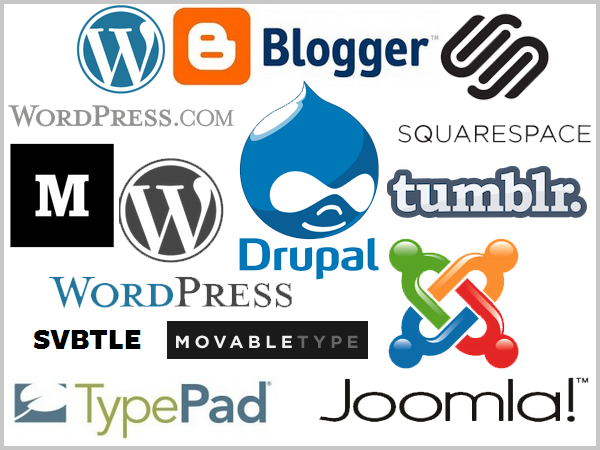
Too many options?
Choosing the right blogging platform is crucial for the success of your blog. Different platforms cater to various needs, offering unique features, ease of use, and varying levels of performance. In this guide, we will rank the top blogging platforms based on performance, popularity, and simplicity. We will also detail the technical requirements, pros and cons, and unique features of each platform.
1. WordPress.org
Ranking:
- Performance: ⭐⭐⭐⭐⭐
- Popularity: ⭐⭐⭐⭐⭐
- Simplicity: ⭐⭐⭐
Technical Requirements:
- OS: Cross-platform (works on any OS with web hosting)
- Database System: MySQL or MariaDB
- Web Server: Apache or Nginx
Pros:
- Highly customizable with thousands of themes and plugins
- Strong SEO capabilities
- Large community and extensive support
- Full control over your site and data
Cons:
- Steeper learning curve for beginners
- Requires regular maintenance and updates
- Hosting and domain costs can add up
Unique Features:
- Open Source: Fully customizable code for advanced users
- Plugins: Extensive plugin repository for adding functionality
- Themes: Wide range of themes for design flexibility
2. Wix
Ranking:
- Performance: ⭐⭐⭐⭐
- Popularity: ⭐⭐⭐⭐⭐
- Simplicity: ⭐⭐⭐⭐⭐
Technical Requirements:
- OS: Cloud-based (accessible via web browser)
- Database System: Managed by Wix (no user setup required)
- Web Server: Managed by Wix
Pros:
- User-friendly drag-and-drop interface
- No need for technical setup or maintenance
- Includes hosting and domain management
- Wide range of templates and design options
Cons:
- Less flexibility and customization compared to WordPress.org
- Limited scalability for larger websites
- Some features require premium plans
Unique Features:
- Artificial Design Intelligence (ADI): Automated site creation based on user input
- App Market: Various apps to extend site functionality
- Integrated Tools: Built-in SEO, marketing, and analytics tools
3. Blogger
Ranking:
- Performance: ⭐⭐⭐
- Popularity: ⭐⭐⭐⭐
- Simplicity: ⭐⭐⭐⭐⭐
Technical Requirements:
- OS: Cloud-based (accessible via web browser)
- Database System: Managed by Google (no user setup required)
- Web Server: Managed by Google
Pros:
- Free to use with Google integration
- Easy to set up and use
- Reliable hosting with Google’s infrastructure
- Monetization options through Google AdSense
Cons:
- Limited customization and functionality
- Fewer themes and plugins compared to other platforms
- Less control over your site and data
Unique Features:
- Google Integration: Seamless integration with Google services
- AdSense: Easy monetization with Google AdSense
- Free Hosting: No hosting fees
4. Medium
Ranking:
- Performance: ⭐⭐⭐⭐
- Popularity: ⭐⭐⭐⭐
- Simplicity: ⭐⭐⭐⭐⭐
Technical Requirements:
- OS: Cloud-based (accessible via web browser)
- Database System: Managed by Medium (no user setup required)
- Web Server: Managed by Medium
Pros:
- Focus on writing and content creation
- Built-in audience and distribution network
- No technical setup required
- Clean and minimalist design
Cons:
- Limited customization and design options
- Monetization is more challenging
- Medium owns your content
Unique Features:
- Built-in Audience: Access to Medium’s reader base
- Distribution: Articles can be featured and promoted within Medium
- Engagement Tools: Highlighting, responses, and claps for reader interaction
5. Squarespace
Ranking:
- Performance: ⭐⭐⭐⭐
- Popularity: ⭐⭐⭐⭐
- Simplicity: ⭐⭐⭐⭐
Technical Requirements:
- OS: Cloud-based (accessible via web browser)
- Database System: Managed by Squarespace (no user setup required)
- Web Server: Managed by Squarespace
Pros:
- Beautiful, professionally designed templates
- All-in-one platform with hosting included
- Good customer support
- Robust e-commerce capabilities
Cons:
- Higher cost compared to some other platforms
- Limited third-party integrations
- Less flexible than WordPress.org
Unique Features:
- Design Quality: High-quality, award-winning templates
- E-commerce Integration: Strong tools for online stores
- 24/7 Support: Reliable customer support
Conclusion
Each blogging platform has its strengths and weaknesses, catering to different types of users:
- WordPress.org: Best for advanced users who need full control and customization.
- Wix: Ideal for beginners and those who prefer a simple, drag-and-drop interface.
- Blogger: Perfect for casual bloggers who want a free, easy-to-use platform.
- Medium: Great for writers focused on content and reaching a built-in audience.
- Squarespace: Excellent for those who want beautiful design and robust e-commerce capabilities.
For most users, WordPress.org is the best-performing platform due to its flexibility, scalability, and powerful features. However, the right choice depends on your specific needs and technical comfort level.







